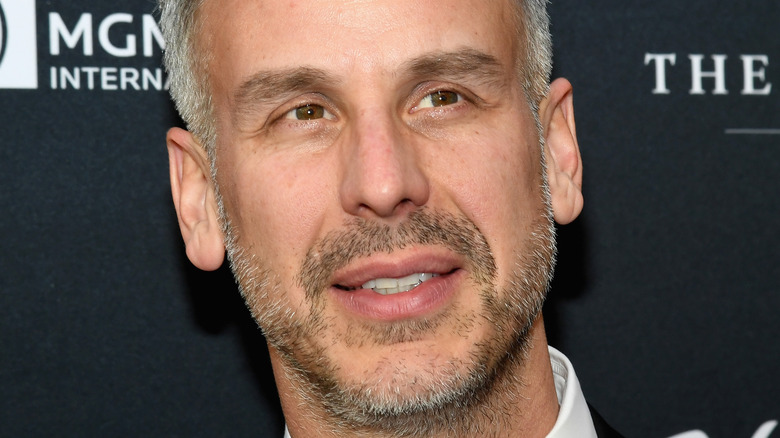Feedfeed Is Under Fire For Some Serious Allegations
It was meant to be a virtual place for people who both loved to cook and who spent time on social media. From there, Feedfeed, which started as a hashtag, grew to become what its LinkedIn page describes "the world's largest crowdsourced publication." Now, The Washington Post reports two of its ex-workers are suing the budding online food company for discrimination, because they believe what should have been a collaborative environment was instead a place of work where discrimination based on gender and race was an accepted part of office culture.
The federal discrimination lawsuit against Feedfeed's senior management was filed by Rachel Gurjar and Sahara Henry-Bohoskey, who say the company's founders, Dan and Julie Resnick, as well as its editorial and test kitchen director Jake Cohen, were at the helm of a workplace where women of color received lower salaries and were "verbally abused and retaliated against when they complained." The women also said that while opportunities existed for white staff, they had to work harder to get the positions they wanted. Gurjar, who grew up in India and went to the Culinary Institute of America, and Henry-Bohoskey, a Black woman who grew up in Japan, said they were even routinely asked to work overtime without being compensated for it; The Post says the women were eventually paid more than $30,000 worth of overtime after they left the company.
Plaintiffs have filed a discrimination lawsuit against Feedfeed senior staff
Feedfeed's founders, the Resnicks, have denied the accusations. The couple claim instead that they built up a work culture which they themselves described to The Washington Post as "creative, constructive, and dynamic." They also say that while the plaintiffs were given opportunities, they were not able to meet the company's performance expectations. In a statement, the couple further told The Post that they "are distraught that it has come to this. ... The number of falsehoods and inaccurate, misleading statements are too numerous to mention in this brief response but will be presented in a court of law." Cohen was also given a chance to respond to the allegations, to which he said: "I treated everyone at the Feedfeed equally and fairly and never demeaned or disparaged any of my co-workers in any way."
While the Resnicks provided testimonials to prove their company was not what Gurjar and Henry-Bohoskey said it was, The Post spoke to former Feedfeed staff, who said the couple could be unpredictable, and as a result, their employees had felt a sense of instability in the workplace.
Gurjar and Henry-Bohoskey's lawyer Susan Crumiller told The Post in an email: "I don't believe that the Resnicks necessarily set out to create a racist caste system in their company. But it is what they did, because they didn't care to try not to."
Feedfeed is not the first food media company to be called out
Unfortunately, if Gurjar and Henry-Bohoskey's allegations turn out to be true, their case wouldn't be the first time racism and sexism reared its ugly heads within food media specifically, and in the food industry as a whole. In 2020, Bon Appétit lost its editor in cheif, Adam Rapoport, after it was revealed that the publication had a toxic work culture which only paid lip service to diversity and inclusion.
Business Insider revealed that Rapoport had treated his assistant Ryan Walker-Hartshorn, a Stanford graduate and the only Black woman on his staff, in her own words, "like the help", and that on the whole, Bon Appétit treated people of color as beneath its white employees. One contributor, Priya Krishna, even revealed at the time that "Bon Appétit is an unbelievably hard place to work at as a person of color, and even harder for Black staffers. That became clear to me almost immediately when I was brought on as a contributing writer in 2018. It's why I've never been interested in going on staff."
Chef Kwame Onwuachi calls on the industry to improve
In a personal reflection for Food & Wine, James Beard awardee, chef, and author Kwame Onwuachi says he sees microagressions in his kitchen and in the resturant industry every day. He calls out to restaurants and the food media to take up the mantle in "making the minority feel included in this vast and diverse industry." To him, inclusivity "means hiring more people of color to review, patronizing more restaurants run by up-and-coming chefs of color, hiring and investing in people from all walks of life, and celebrating different cultures in a genuine way."
He adds: "We have worked so hard to get out of the kitchen, and now it's time to do whatever it takes to get back in and be recognized for it. In the meantime, all that we can do is continue to sign our names on the invoices, nod, smile, and hope that one day we will be recognized not only for the color of our skin, but for the talent in our bones, the skills honed throughout the years, and the dedication it takes to be able to stand at the head of the pass."



